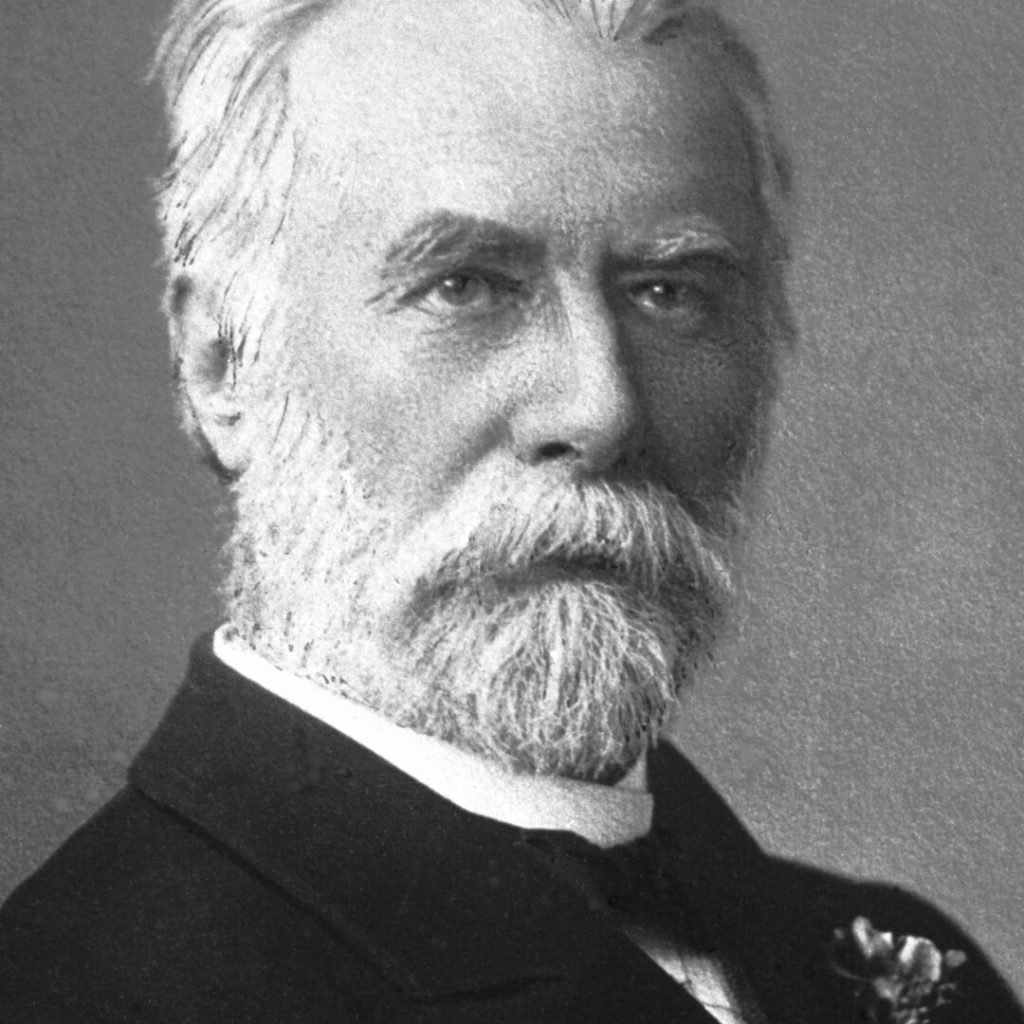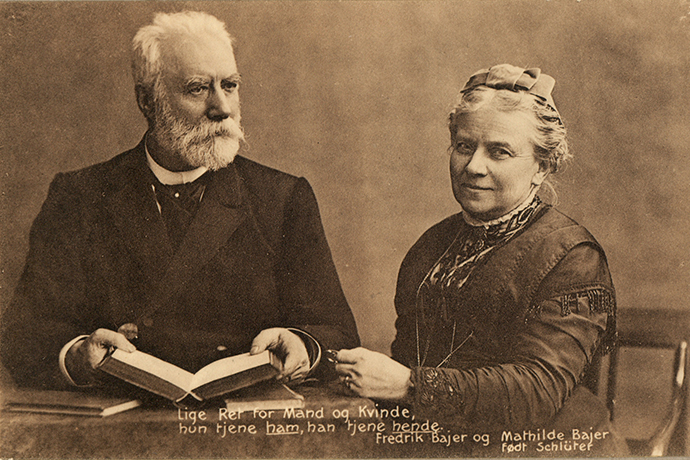Fredrik Bajer
Speed read
Fredrik Bajer was awarded the Nobel Peace Prize, jointly with Klas Pontus Arnoldson, for his long-time work for the cause of peace as politicians and peace society leaders.

Full name: Fredrik Bajer
Born: 21 April 1837, Næstved, Denmark
Died: 22 January 1922, Copenhagen, Denmark
Date awarded: 10 December 1908
Officer turned peace activist
In 1865, Fredrik Bajer resigned his commission. The previous year he had participated in the Dano-Prussian War, which ended in defeat for Denmark. He decided to dedicate his life to the cause of peace. Bajer circulated ideas about international cooperation within the Nordic countries, writing countless articles for newspapers and periodicals. He founded the Peace Society of Denmark, establishing ties to the international peace movement. He campaigned for a policy of neutrality as well as a common foreign policy – of peace – for the three Nordic countries. Bajer entered politics as a liberal democrat and was elected to the national assembly, which opened the door to his participation in the Inter-Parliamentary Union. For decades Bajer was a driving force behind the organisation, which brought together parliamentarians from different countries to discuss international issues.
"When I began my military service at seventeen, I naturally thought I had embarked upon my life’s calling. But my discernment was gravely lacking, and I therefore encountered disappointment after disappointment; ultimately, my disappointment was so great that I had to forsake my chosen path. Military service paved the way for service in the name of peace."
Fredrik Bajer, Memoirs, 1909.
Preparation for service to peace
As a young officer, Fredrik Bajer instructed soldiers in field duty and battle techniques, always insisting that war was a means of achieving peace. In his free time he studied constitutional law and history, becoming increasingly engaged in Danish politics. Bajer disliked much of what he saw in the Danish army, and detested his fellow officers’ card games and parties. He also hated the severe punishments meted out to soldiers. He later maintained that his military service formed the foundation for his pursuit of peace.
"A few days ago there was much ado about a group of older gentlemen who were celebrating their 50th anniversary as officers. But one was forgotten. They forgot Fredrik Bajer. He was named Second Lieutenant 50 years ago nearly to the day... Fredrik Bajer has not been made a general, nor is he highly decorated. He fought in the war, was promoted to First Lieutenant, only to leave the Army ... From this seasoned warrior came a fervent friend of peace, a zealous champion of the dream of a lasting peace on Earth."
Claus Hoff in Politiken, 7 November 1906.
The Nordic countries as a neutral republic
As a young man, Fredrik Bajer supported a strong monarchy. He later came to prefer the republic to the costly, undemocratic monarchy. He believed that Sweden, Denmark and Norway ought to unite in a republic with inner autonomy and a common foreign policy. He wanted these changes to be implemented by peaceful means, not through revolution and violence. Bajer maintained that the Nordic countries needed to have a military defence force, but that it should be controlled by the people. He felt it would be more democratic to dismantle the standing forces and arm the people.
Equality for women is integral to peace
Fredrik Bajer enjoyed a close, life-long collaboration with his wife, Pauline Mathilde, and together they founded the Danish Women’s Society in 1871. The couple believed that women’s rights issues formed an integral component of the quest for peace. The Bajers’ work for women’s rights was predicated on a marriage based on the ideals of equal rights and equal justice. They summed it up on a postcard: “Equal rights for man and woman, she serves him and he serves her.”

Bajer and Kant
Bajer was a competent translator. He translated the German philosopher Immanuel Kant’s (1724-1804) famous book Perpetual Peace to Danish. According to Lars Fredrik Händler Svendsen, in Store Norske Leksikon:
“The definition of political freedom is that all men have the right to the highest possible degree of freedom, in as far as this is compatible with a comparable freedom for others. Kant perceived the relationship between different states in a similar way. Just as it takes a legal system to ensure that the strongest individuals in a community do not oppress the weakest, there must also be a legal system among states so that the largest states do not smash the small states. Kant therefore recommended the establishment of an association of nations that should regulate relations between states.”
| Inter-Parliamentary Union Founded in 1889 to bring together representatives from various national assemblies for annual debates. Headquartered in Geneva. Works for the peaceful resolution of conflict between nations. Addresses topics such as disarmament, environmental protection, gender equality and current world conflicts. |
Learn more
The Danish pacifist, Fredrik Bajer (April 21, 1837-January 22, 1922), was born in Vester Egede, near Naestved, Denmark ...
Disclaimer: Every effort has been made by the publisher to credit organisations and individuals with regard to the supply of photographs. Please notify the publishers regarding corrections.
Nobel Prizes and laureates
Six prizes were awarded for achievements that have conferred the greatest benefit to humankind. The 14 laureates' work and discoveries range from quantum tunnelling to promoting democratic rights.
See them all presented here.
